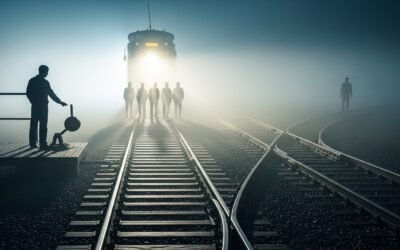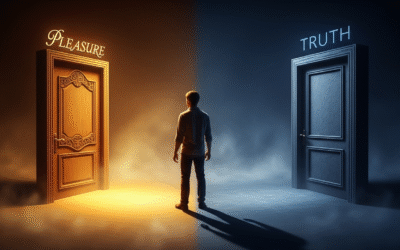Let's consider the case: you are on the side of a railroad switch. A trolley is coming down the tracks and will kill five tied-up individuals who cannot move and whom you can save by doing nothing. But there is a switch, it is a switch that can divert the trolley onto...
The CogiEra Blog
The Grandfather Paradox: Can we ever escape the logic of time?
The "grandfather paradox" of time travel is reassuring in its simplicity: go back through time and ensure that your grandfather never met your grandmother, and you would never have been born. But if you were not born, who is going to go back in time and ensure that...
The Experience Machine: Would we choose pleasure over truth?
Robert Nozick's "experience machine" offers a disarmingly straightforward challenge. Imagine a machine that allows you to plug in and experience any life you desire, love, success, adventure, or peace of mind. You would not know it was simulated from the inside; the...
Zeno’s Paradoxes: Can Motion Itself Be an Illusion?
We assume it for granted. You walk from one corner of the room into another, cars pass along the street, the Earth turns upon its axis. In ancient Greece there existed the philosopher Zeno of Elea who created a sequence of puzzles (known as Zeno's paradoxes) that call...
The Ship of Theseus: Are We the Same Person If Every Part of Us Changes?
Take the ancient wooden ship sailing on the seas. The planks of it do eventually rot and so the sailors replace them one by one. Eventually, they replace every piece of wood. Is the ship the same ship then? And if another person gathered the old planks taken off this...
Forgetting and Forgiving: Can We Truly Forgive Without Forgetting?
Forgiveness is that kind of word that comes so effortlessly off the lips but is agonizingly difficult to perform. We forgive because it will improve us, because it will liberate us from wrath, because we should. But what forgiveness can occur if the pain of...





